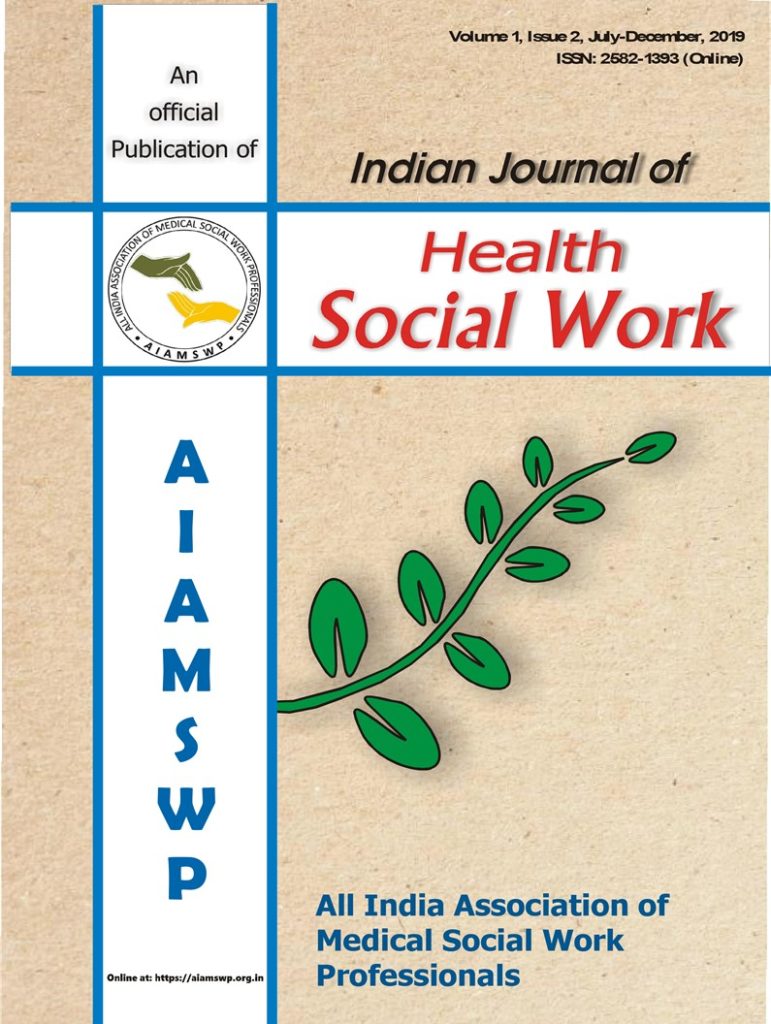Indian Journal of Health Social Work
(UGC Care List Journal)
Menu
RELATIONSHIP BETWEEN INTELLECUAL FUCTIONING, FAMILY BURDEN AND QUALITY OF LIFE OF PARENTS WITH INTELLECTUAL IMPAIRMENT, MUZAFFARPUR, BIHAR
ABSTRACT
Background: Parents who have children with intellectual disabilities are often reported to have physical and psychological distress related to caring for their children, thus affecting their quality of life. Parents or care-givers are definitely the heart of the family; who not only have to deal with the issues associated with child’s impairment but also have to maintain the household. Today, a number of studies have demonstrated that caregivers are more vulnerable to develop mental and physical problems as compared to non-caregivers.
Aim: The aim of the present study was to assess the relationship between quality of life and family burden among the parents of children with Intellectual.
Sample: Quality of life scale and family burden schedule was administered on 120 parents of children diagnosed with Intellectual Impairment. Tools: World Health Organization -Quality of Life (WHOQOL) – BREF (Hindi Version), Personal view survey and The Cooper smith Self-Esteem Inventory (CSEI) were used.
Design: This study was cross-sectional study and conducted at a day care center of a non-governmental registered organization, Muzaffarpur, Bihar.
Results and Conclusion: It has been found that quality of life negatively related with economic family burden, family functioning, family relations, interpersonal relations of parents, other family burden and the quality of life positively related with intellectual functioning. It indicates that the level of intellectual functioning will increase then quality of life become also better.
Background: Parents who have children with intellectual disabilities are often reported to have physical and psychological distress related to caring for their children, thus affecting their quality of life. Parents or care-givers are definitely the heart of the family; who not only have to deal with the issues associated with child’s impairment but also have to maintain the household. Today, a number of studies have demonstrated that caregivers are more vulnerable to develop mental and physical problems as compared to non-caregivers.
Aim: The aim of the present study was to assess the relationship between quality of life and family burden among the parents of children with Intellectual.
Sample: Quality of life scale and family burden schedule was administered on 120 parents of children diagnosed with Intellectual Impairment. Tools: World Health Organization -Quality of Life (WHOQOL) – BREF (Hindi Version), Personal view survey and The Cooper smith Self-Esteem Inventory (CSEI) were used.
Design: This study was cross-sectional study and conducted at a day care center of a non-governmental registered organization, Muzaffarpur, Bihar.
Results and Conclusion: It has been found that quality of life negatively related with economic family burden, family functioning, family relations, interpersonal relations of parents, other family burden and the quality of life positively related with intellectual functioning. It indicates that the level of intellectual functioning will increase then quality of life become also better.

It’s a matter of great pride for me that All India Association of Medical Social Work Professionals is launching first issue of “Indian Journal of Health Social Work” on the auspicious occasion of 6th Annual National Conference of AIAMSWP, 2019.

